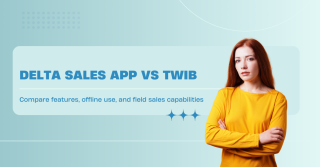Transitioning From Traditional To AI-Driven Field Service Management Software
_1732099708.png)
The landscape of field service management is rapidly evolving, driven by advancements in technology, particularly artificial intelligence (AI). As organizations recognize the need for efficiency and enhanced customer experiences, migrating from traditional systems to AI-powered solutions has become essential. This guide outlines the key steps and considerations for a successful transition.
Understanding the shift
Traditional field service management typically involves manual processes, paper-based documentation, and limited data analysis capabilities. Common challenges include:
-
Inefficient Communication: Reliance on phone calls and emails can lead to miscommunication and delays.
-
Data Silos: Information is often scattered across different systems, making it difficult to obtain a holistic view of operations.
-
Limited Analytics: Traditional systems may lack robust reporting tools, hindering data-driven decision-making.
AI-Powered Field Service Management Software addresses these issues by automating processes, providing real-time insights, and enhancing customer interactions. Key benefits include:
-
Automated Scheduling: AI algorithms can optimize schedules based on various factors such as technician availability, location, and skill set.
-
Predictive Maintenance: Machine learning models can analyze equipment data to predict failures before they occur, reducing downtime.
-
Enhanced Customer Experience: AI chatbots and virtual assistants can provide immediate support to customers, improving satisfaction.
Steps for Migration
-
Assess Current Systems
-
Evaluate your existing field service management processes and identify pain points.
-
Determine which features of traditional systems are essential to retain and which can be improved.
-
-
Define Objectives
-
Establish clear goals for the migration. Are you looking to reduce costs, improve response times, or enhance customer satisfaction?
-
Set measurable KPIs to track the success of the new system.
-
-
Select the Right AI Software
-
Research various AI field service management solutions that align with your business needs.
-
Consider factors such as ease of use, integration capabilities with existing systems, and vendor support.
-
-
Plan Implementation
-
Develop a detailed implementation plan that includes timelines, resource allocation, and training programs for staff.
-
Ensure that all stakeholders are involved in the planning process to address any concerns early on.
-
-
Data Migration
-
Carefully plan how to transfer data from traditional systems to the new AI platform.
-
Cleanse and organize data to ensure accuracy and consistency in the new system.
-
-
Training and Adoption
-
Provide comprehensive training for all users to ensure they are comfortable with the new software.
-
Foster a culture of adaptability within your organization to encourage acceptance of the new technology.
-
-
Monitor Performance
-
After implementation, continuously monitor performance against established KPIs.
-
Gather feedback from users and make necessary adjustments to optimize system usage.
-
Conclusion
Migrating from traditional field service management systems to AI-driven solutions offers significant advantages in efficiency, customer satisfaction, and operational insights. By following a structured approach that includes assessment, planning, implementation, and ongoing monitoring, organizations can successfully navigate this transition.
One solution that has proven effective in enhancing field sales operations is the Delta Sales App. This platform not only automates various sales processes but also provides robust analytics and reporting features that empower sales teams to make informed decisions. With its user-friendly interface and comprehensive support, Delta Sales App stands out as a valuable tool for businesses looking to modernize their field service management strategies.








